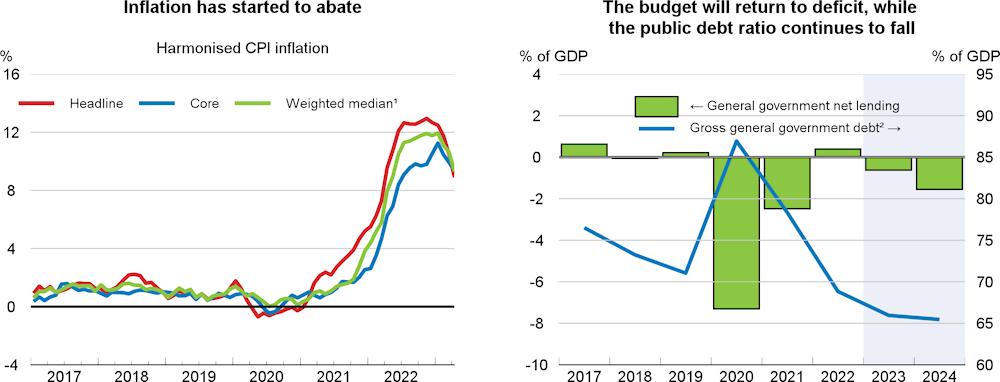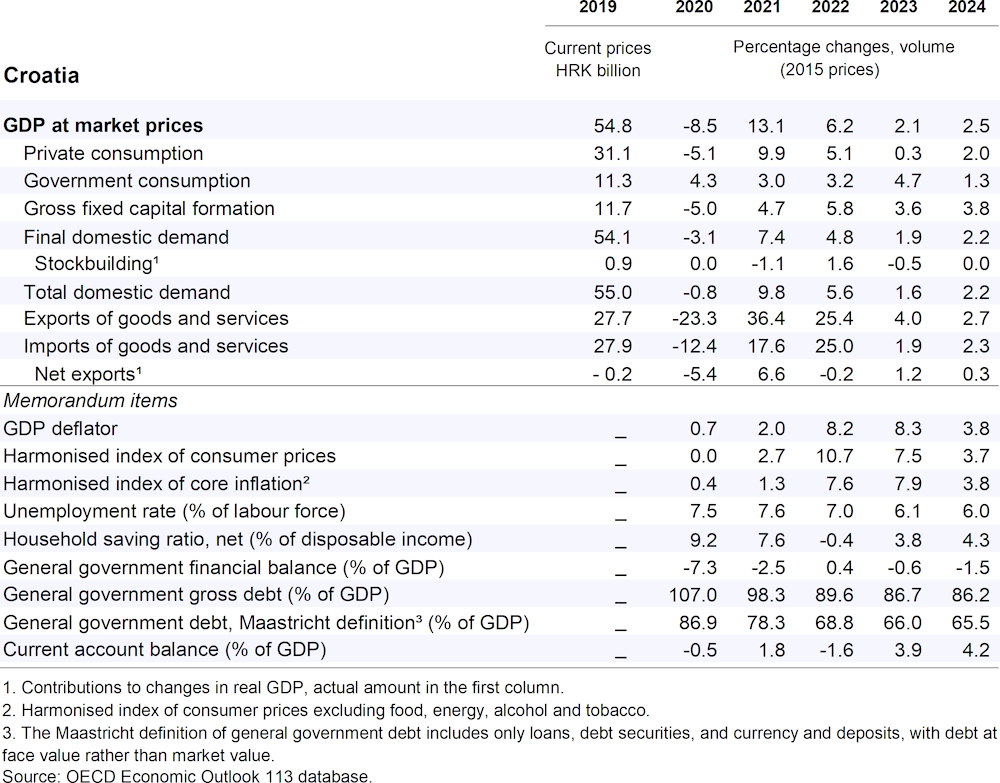Output growth is expected to moderate to 2.1% in 2023 and 2.5% in 2024. Rising wages and jobs growth will support households’ real spending. Croatia’s integration in the euro and Schengen areas plus higher disbursement of European funds are expected to bolster investment and exports. Inflation will gradually abate from current high rates following the retreat in energy and other international prices.
The government plans to shift the budget balance from a small surplus in 2022 to a modest deficit in 2023 and a larger deficit in 2024. It has extended substantial energy price subsidies, alongside more modest support for incomes and expanded energy efficiency investments. Curtailing spending on untargeted energy price subsidies sooner, while further addressing Croatia’s structural challenges, such as by boosting adult education, family support and investments in energy efficiency, would help make the recovery more sustainable and inclusive.


